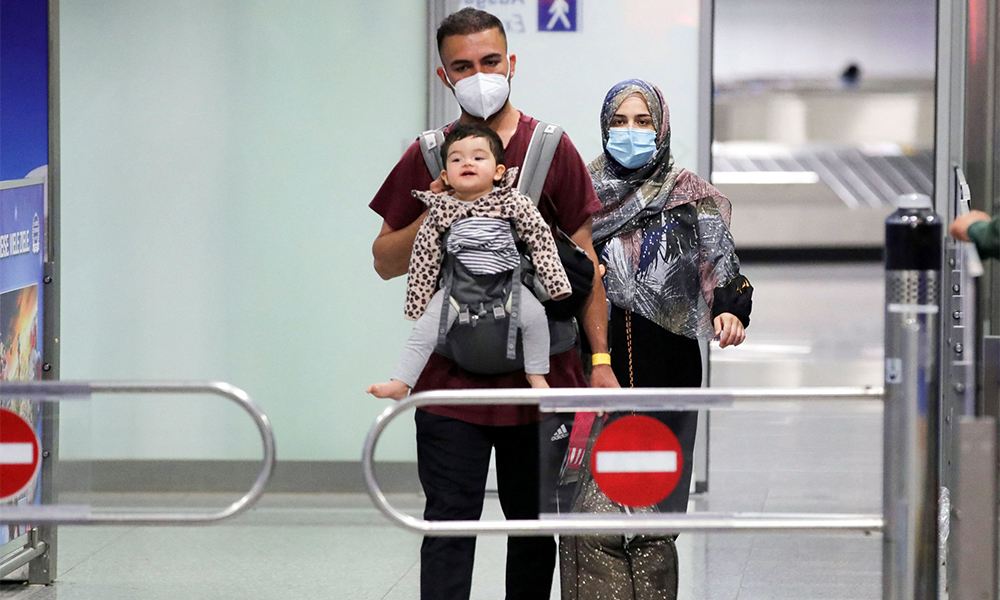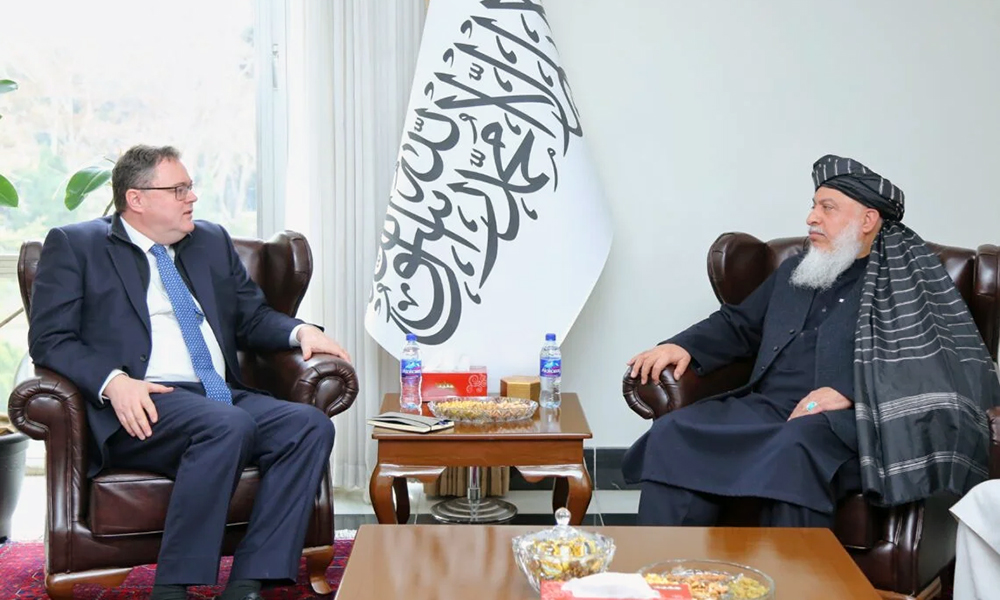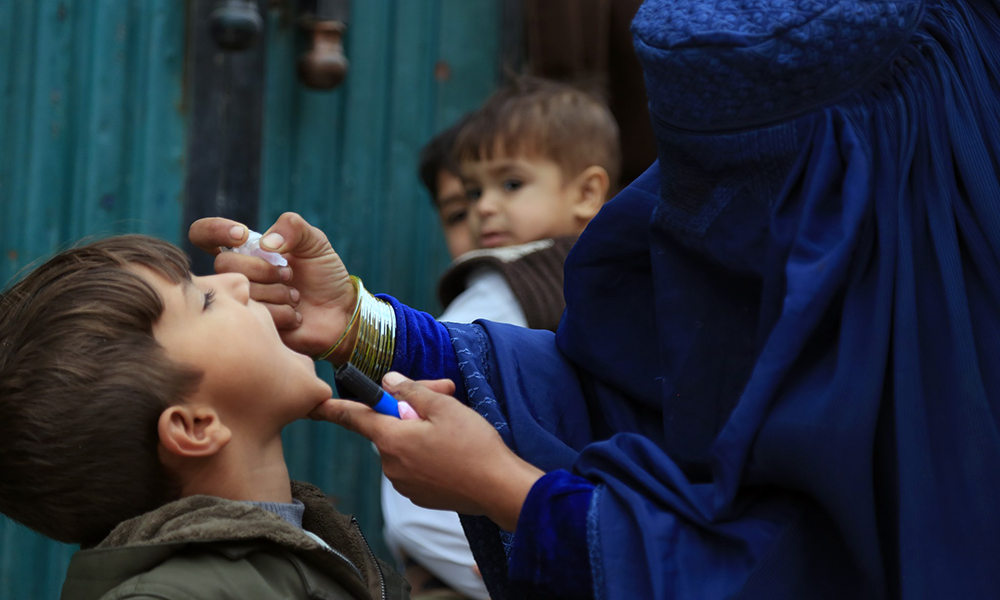Latest News
Afghan refugees in UK told to look for private accommodation

Afghan refugees who sought asylum in the UK after the Islamic Emirate of Afghanistan (IEA) took over Afghanistan a year ago have been told to look for private accommodation as the government-funded accommodation scheme winds down.
In a letter sent to the Afghan refugees, the Home Office warned that not every council would accept their request for a place on the social housing list and has told them to use estate agent websites in the private sector, Anadolu News Agency reported.
“The use of hotels to house those resettling from Afghanistan is a temporary solution, and we continue to work with over 350 local authorities to move Afghan families from hotels to permanent accommodation as quickly as possible,” a statement from the Home Office said.
“To support the resettlement of Afghan families, local authorities are given £20,520 ($24,809) per person over a three-year period. They have the flexibility to use this funding to contribute towards renting accommodation, including deposits, letting fees and furnishing,” it added.
Although the government is still accommodating up to 9,500 Afghan refugees in hotels, with 7,000 rehoused, the Home Office is planning to wind down the use of hotels to house refugees, Anadolu reported.
Rights groups and charities, however, have voiced concerns over the lack of funding, guidance and assistance offered to the refugees and fear that many families will fall into homelessness as a result.
Afghan families and individuals, many of whom have only been in the UK for a year, will struggle to find accommodation. Due to language barriers which will prevent them from negotiating their rental agreements and the lack of necessary documentation, many fear that these families will fall through the system.
“Afghan families couldn’t have imagined that one year after arriving they’d still be warehoused in unsuitable accommodation, without space, privacy and stability. There is also a serious risk of homelessness for these families if suitable accommodation is not offered under the current Home Office plans,” said Eva Tabbasam, the director of Gender Action for Peace and Security.
“The government has had a year to sort things out – instead, it’s getting worse. If suitable accommodation was readily available for the 9,500 people still in hotels, families would already have been moved into it. We don’t yet know what kind of move on accommodation families will be offered,” she added.
The government’s plans to rehouse Afghan refugees include sending them to different parts of the country. However, as the majority are based in London and with children enrolled into school and family members at work, the scheme may prove difficult, Anadolu reported. .
Furthermore, councils have voiced concern over the lack of housing options for Afghan families with Claire Holland, London Councils’ executive member for communities, saying “boroughs are very concerned by the lack of alternative housing options for these families – a particular challenge in the capital due to the chronic shortage of affordable housing here.”
UK council housing lists are notoriously long with many having to wait up to a year to find a house fit for a large family. Additionally, although Afghan families have the right to rent, many landlords are reluctant to sign agreements with them due to a lack of necessary and sufficient documentation.
The plan to rehouse Afghan refugees in private accommodation comes on the one-year anniversary of the Islamic Emirate of Afghanistan (IEA) rule.
Latest News
Norwegian Chargé d’Affaires meets with IEA deputy foreign minister
Welcoming the diplomat’s visit to Kabul, Stanikzai underscored the importance of political relations between Afghanistan and Norway, the foreign ministry said in a statement.

The Norwegian Chargé d’Affaires for Afghanistan, Per Albert Ilsaas, on Saturday met with IEA’s Deputy Foreign Minister for Political Affairs, Sher Muhammad Abbas Stanikzai, in Kabul.
Welcoming the diplomat’s visit to Kabul, Stanikzai underscored the importance of political relations between Afghanistan and Norway, the foreign ministry said in a statement.
In addition to focusing on bilateral political, humanitarian, and other pertinent issues, the two sides expressed hope that continued engagement would lead to constructive solutions to related issues.
This comes two weeks after the Foreign Ministry Spokesman Abdul Qahar Balkhi expressed disappointment regarding the decision by the Norwegian government to downgrade diplomatic relations with Afghanistan.
Balkhi said in a post on X that such decisions should not be linked with internal affairs of other countries.
“Diplomatic engagement is most effective when it fosters mutual understanding and respect, even amidst differing viewpoints,” he stated.
“Access to consular services is a fundamental right of all nationals. We strongly urge all parties to prioritize this principle in the spirit of international cooperation,” he added.
Latest News
A new polio vaccination campaign is set to launch in Afghanistan
Afghanistan and Pakistan are the only two countries in the world where polio has not been eradicated.

The “Afghanistan Polio-Free” organization announced that a new round of polio vaccinations will begin on Monday, December 23, in various provinces of Afghanistan.
The organization did not specify which provinces will be targeted or how long the vaccination campaign will last.
Afghanistan and Pakistan are the only two countries in the world where polio has not been eradicated.
On December 4, 2023, the World Health Organization (WHO) issued a statement reporting a 283% increase in polio cases in Afghanistan. According to the WHO, the number of positive environmental samples for wild poliovirus type 1 in Afghanistan in 2024 reached 84, compared to 62 cases in 2023.
The Ministry of Public Health claimed in November 2024 that no new cases of polio had been reported in Afghanistan for the year.
Latest News
G7 envoys urge national dialogue for lasting stability in Afghanistan

Special Representatives of the Group of Seven (G7), including the European Union, have emphasized the importance of a national dialogue for achieving long-term stability in Afghanistan.
Following a meeting on Afghanistan in Geneva, Switzerland, G7 special envoys issued a joint statement calling for the restoration of women's rights and urging the Islamic Emirate to fight terrorism.
The statement reads: "Achieving sustainable peace and stability requires credible governance that represents all segments of Afghan society."
The representatives also expressed concern over the IEA’s decision to ban girls from attending medical institutes, warning that it will have devastating consequences for the citizens, particularly mothers and their infants.
The statement described this ban as unacceptable and called on the Afghan authorities to lift it immediately.
Earlier, countries and international organizations had called for the removal of restrictions on the education and employment of women and girls, emphasizing the need for a national dialogue.
In response to these concerns, IEA has repeatedly stated that it will not allow interference in the internal affairs of the country.
The G7 special envoys also expressed their concern about the recent terrorist attacks in Kabul and the surrounding region, warning that terrorism remains a serious threat to Afghanistan's security. They confirmed the actions of the IEA against Daesh but stressed the need for more decisive measures.
-

 Latest News5 days ago
Latest News5 days agoIndia hoping to import coal and marble from Afghanistan
-

 Sport4 days ago
Sport4 days agoZimbabwe’s opening ODI against Afghanistan abandoned
-

 Latest News5 days ago
Latest News5 days agoJapan announces $27.5 million aid package to Afghanistan
-

 Latest News1 day ago
Latest News1 day agoAfghan men must stand with women to support viable future of country: US envoy
-

 World3 days ago
World3 days agoNorth Korean troops suffer 100 deaths, struggling in drone warfare, South Korea says
-

 Latest News3 days ago
Latest News3 days agoTwo horror accidents on Kabul-Kandahar highway leave 52 dead
-

 International Sports4 days ago
International Sports4 days agoLanka T10: Kandy Bolts in at 4th spot in playoffs after thrilling day
-

 Sport3 days ago
Sport3 days agoAfghanistan crush Zimbabwe by 232 runs in second ODI
























